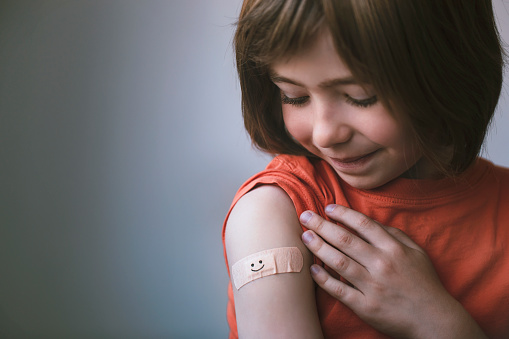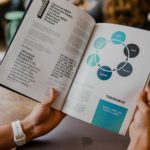
In 1921, a nine year-old boy was given an injection of morphine for a dental procedure, and he subsequently became “squeamish” at the sight of needles. The term fear or aversion to needles is medically termed as “needle fear” or “needle phobia.”
Do you know that a child’s learned fear at the sight of a hypodermic needle is a conditioned response. Let’s examine this interesting phenomenon in the light of modern knowledge of classical conditioning.
Listed below are some underlying causes to needle phobia:
1. A needle may be painful when inserted.
The pain only lasts for a few seconds, but it may be intense enough that it induces fear in children who experience it. It can also cause panic attacks in children just by being seen alone.
2. The feeling of loss of control
Oftentimes, needles are associated with a loss of control and helplessness in children. They have no choice or say in which needle is used on them or where it is inserted.
They may also be in uncontrollable pain and have no way to calm or reduce that sensation except by screaming.
This fear can lead to a panic attack if the child sees any reminders of needles, like the sight of blood for example, which reminds him/her about their unpleasant experience with needles.
3. Some people may be more prone to fear than others.
People may be more prone to “needle fears” than others. Children with physical disabilities or other life-threatening conditions are more likely to experience needle fears than children with regular health.
Children who have family members or close friends who have experienced needle phobias should be especially careful because they are more prone to the same condition in them and they may not recognize it.
4. Some people develop needle phobias after a traumatic experience
People develop their phobia after a bad experience of being injected with needles or other painful procedures or tests, such as blood tests and vaccinations.
Some people develop a needle phobia because of the experiences of their parents and family members.
Some children may develop a needle phobia after witnessing the reactions of their parents or caregivers in traumatic experiences with needles such as vaccinations, blood tests, and medical examinations.
Other children may simply be so close to their parents that they feel the same way about needles as they do.
5. Some needle phobias are hereditary
A number of disorders and conditions are known to be genetic, meaning that they may run in a family. One example of this is “Needle Phobia” which is a very common disorder and can be seen in many children. In fact, it is estimated that about 5% of all people will develop needle phobia at some point during their lifetime.
This disorder involves fears that the person may have before, during or after being poked with a needle or seeing blood.
Over half of those who suffer from this condition are children and most commonly occurs in boys.
Another genetic disorder that may be passed down from parent to child is “Pica,” which is the penchant for eating substances other than food. Allergies may also be a result of hereditary traits that can cause needle phobia.
6. Stress and anxiety may cause or contribute to a needle phobia
Children who have been in an accident, experienced some type of traumatic event or had surgery are more likely to develop needle fears.
They are also more likely to develop a needle phobia if they have personal or family experiences with needles such as vaccinations, blood tests, and medical examinations that result in severe pain and harm them.
7. Some needle phobics have been traumatized by a previous traumatic event
Some adults may develop needle phobias due to serious injuries, accidents or surgery they had in their childhood. For example, if a child underwent surgery and had to be stitched up afterwards, he/she may develop a fear of needles because it was painful and scary at the time.
A child who was always around during his/her parent’s visits to the doctor’s office may develop a fear of needles after seeing them receive blood tests or injections. He/she could have even seen them faint in fear due to being scared of needles at the time.
Children may also develop needle phobias after being traumatized by a traumatic experience. For example, if a parent was injured and had to have stitches after an accident involving needles, the child may develop needle phobias to try and avoid needles.














